About Us Menu
My Top Ten Books of the Year

One of InterVarsity's core values is "discipleship of the mind." As a community, we believe that our loving God involves reason and that reading is a spiritual discipline.
Every year, I have made it a practice to post the books that have most influenced my thinking over the past twelve months. Here is my list for 2012:
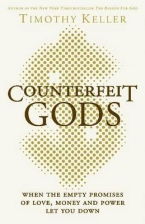 |
1. Counterfeit Gods I wish this book had been written when I was younger. It is simple, yet chillingly profound. An "idol" is defined as anything that has undue influence upon us — be it success, affluence, romantic love, security, nationalism, children, intellectual pride, physical fitness, or dozens of other possibilities. Keller wisely advises: "Idols cannot simply be removed. They must be replaced … by God himself." |
|
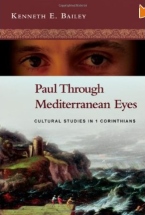 |
2. Paul Through Mediterranean Eyes: Cultural Studies in 1 Corinthians by Kenneth Bailey (InterVarsity Press, 2011) Bailey has done it again. As a sequel to Jesus Through Middle Eastern Eyes, he digs deeply into Coptic, Syriac, and Arabic sources for a more robust understanding of 1 Corinthians. After teaching New Testament Studies for four decades in Egypt, Lebanon, and Jerusalem, Bailey brings extraordinary insight to the apostle Paul's original intent and the understanding of Paul's original audience. |
|
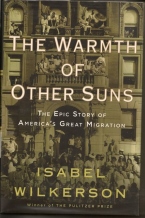 |
3. The Warmth of Other Suns: The Epic Story of America’s Great Migration by Isabel Wilkerson (Random House, 2010) Winner of the Pulitzer Prize, I simply could not put this book down. Wilkerson tells the gripping story of six million southern Blacks migrating north and west between 1915 and 1970. The author focuses on three families who move to Chicago, Harlem, and Los Angeles, in their hopes to leave racism and poverty behind. Suffice it to say, their challenges do not end at the Mason-Dixon line. |
|
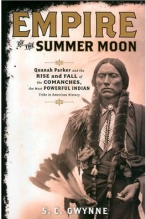 |
4. Empire of the Summer Moon by S.C. Gwynne (Scribner, 2010) A heart-breaking account of the last truly free Native American tribe, the Comanches. The twist of this story is that Quanah Parker, the final Comanche chief, was biracial. His Caucasian mother had been kidnapped as a child and later married into the tribe. The demise of the tribe is told with epic and tragic detail. |
|
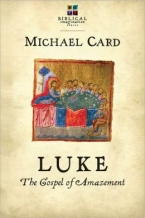 |
5. Luke: The Gospel of Amazement by Michael Card (InterVarsity Press, 2011) Everything that Michael Card touches seems to turn to gold. Not only is he an amazing songwriter and musician, but he is also a deft writer. This concise reflection on the third gospel follows an earlier — and equally compelling — book on Mark. Works on Matthew and John are soon to follow. |
|
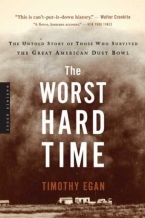 |
6. The Worst Hard Time Ever by Timothy Egan (Mariner Books, 2006) A few months ago, PBS hosted a Ken Burns film series about the 1930s Dust Bowl. Hardly able to believe what I was seeing – the ecological and human disaster was beyond description – I keyed into the fact that the series was based on Tim Egan’s book. Egan is a master storyteller who brilliantly brings to life a time and place that our nation would prefer to forget. |
|
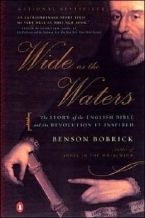 |
7. Wide As the Waters: The Story of the English Bible and the Revolution it Inspired Who knew that the crafting of the King James Bible in 1607 was surrounded by so much intrigue? Schismatic churches, divided kingdoms, lost lives, Bobrick's account reads more like a novel than history. And who could have predicted the immense impact that this translation would have not only on the church but on the English language and global history? |
|
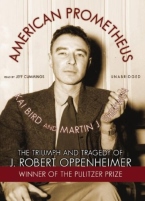 |
8. American Prometheus: The Triumph and Tragedy of Robert Oppenheimer by Kai Bird and Martin Sherwin (Knopf, 2005) Robert Oppenheimer, father of the atomic bomb, was a complicated and tortured man. His passion for theoretical physics took a decidedly practical bent when fear of Nazi military science motivated him to create the a-bomb. However, after observing its impact upon Hiroshima and Nagasaki, he deeply regretted his role and advocated sharing the technology with the USSR. The result? Political and social blacklisting. |
|
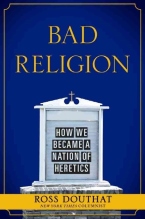 |
9. Bad Religion: How We Became a Nation of Heretics by Ross Douthat (Free Press, 2012) I enjoy Ross Douthat’s regular columns in the New York Times. He is young, bright, and serious about his faith. The premise of his book is that American Christianity has been rotting at its core over the past half century. Cultural accommodation, syncretism, and the erosion of Scriptural authority have combined to make the church's public voice much less influential. Provocative and compelling. |
|
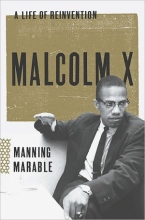 |
10. Malcolm X: A Life of Reinvention by Manning Marable (Penguin, 2011) Malcolm X has always been a complex, profound, and spiritually disturbing figure to me. How should I, as a follower of Jesus, understand this man? For those of us who grew up reading Alex Haley’s The Autobiography of Malcolm X, professor Marable’s new Pulitzer winning biography is a bit of an epiphany. His subtitle — A Life of Reinvention — points to the book's main theme — and Malcolm's self-telling omits key points and embellishes others. |
|
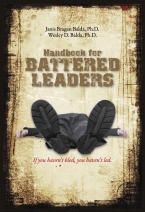 |
Honorable Mention: Handbook for Battered Leaders by Janis and Wesley Balda (InterVarsity Press, 2013) Any book that commences with the line — "If you haven't bled, then you haven't led" — is worth pursuing. I recommend the Baldas' book for all staff, particularly Area Directors and above. It is so well written that I devoured it in a single evening (last night, actually). |